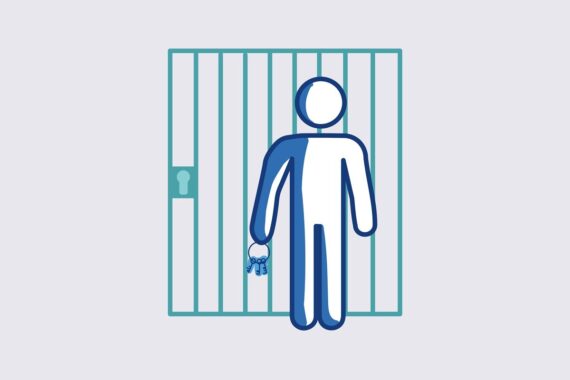Prison GP – all you need to know

Dr Anna Trigell is a GP who works at a category C prison in Cambridge. She explains how she got into the role, what she finds rewarding about it, and the challenges it comes with
How do I get into the role (including necessary qualifications)?
There’s no need for any extra qualifications to become a prison GP, because you are practising as a normal GP. However, there is extra training within the role that you can do if you are interested – such as in drug and alcohol services.
I got into the role towards the end of Covid. I had left my partnership and was thinking about what to do next. The bits I like most about general practice are seeing patients face-to-face and building a rapport with them; both of which had dwindled during the pandemic. Prison medicine seemed to fulfil these criteria.
I contacted my local immigration centre, and they put me in touch with the organisation that runs health services for various prisons and immigration centres in our area. They had a vacancy, so following a period of induction, I started working for them once a week in my local prison.
How much does it pay?
Remuneration is similar to GP locum rates.
How much time do I need to devote to it?
This will depend on your prison. Lots of prisons have a very strong regular healthcare team which includes nurses, physios and podiatry. There is a ‘daily doctor’ who has a list of pre-booked patients for the day. If there are emergencies, then you might be asked to help with those. Admin includes the day’s blood results and documents.
Continuity is good from both a patient and doctor perspective. Some of my colleagues work in various prisons on an ad hoc basis, but I tend to do a fixed day in the same prison. There are salaried or locum options available depending on service providers.
In terms of hours, it depends on the prison again. Where I work, the GP service is pretty much 9am-5pm, and the nurses cover from 7am-7pm. Other prisons have 24/7 teams depending on population need.
What’s good about the job?
I especially like the face-to-face contact. It’s an old-fashioned sort of GP model: there’s a waiting room, people turn up for their appointments, you see them, then they return to their cells. There are no mobiles, no emails or texting. I like establishing an in-person rapport – there’s a lot you can get from seeing the patient in the room which you can’t do remotely.
I also like working with a group of the population that I probably wouldn’t have worked with otherwise. I have always worked in affluent and middle-class areas, so working with a vulnerable population is quite different for me.
I find the role is well suited to me now as I am mid-career. The patients are complex and there is a lot of pathology. Many of them don’t make good healthcare decisions and there are factors that aren’t an issue in usual general practice. For example, if they have a hospital appointment, they’ll need to be chained to officers, which is a huge barrier to attendance. If they do attend, they are often self-conscious and not necessarily able to take in what the clinician is saying at the time. And so, for me, being able to go through the clinic letter afterwards and explain what it means in a more controlled setting is very rewarding.
What’s bad about the job?
As there is a ‘daily doctor’ you don’t often see the other doctors you work with. We are all doing the same job, but don’t overlap so you can feel isolated. We write thorough notes to ensure our colleagues are aware of our thought processes and plans. The nursing staff and wider healthcare teams are there though, so you build relationships with them.
People always ask whether I feel safe. My answer is yes, usually. When I see patients, there’s normally not anyone else in the room – but an officer will be outside the door. Occasionally there are patients with whom it is advised to have a second person present, but this is infrequent. This is dependent on the prison; however, higher security prisons will have different arrangements.
Advice from the MDDUS
If you’re working in a prison setting, your indemnity may be provided by the state — but for any additional work, we can help assess what’s needed.
Click here to see all the other portfolio careers in this series
Portfolio careers
What is the right portfolio career for you?












